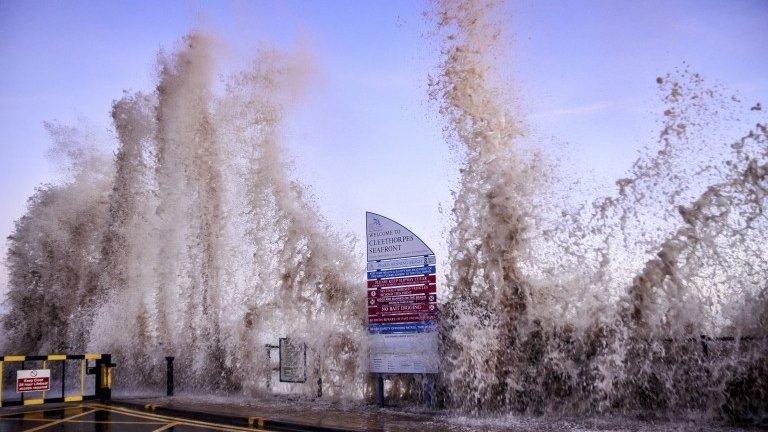Severe flood warnings: Storm surge preparations made
- Published
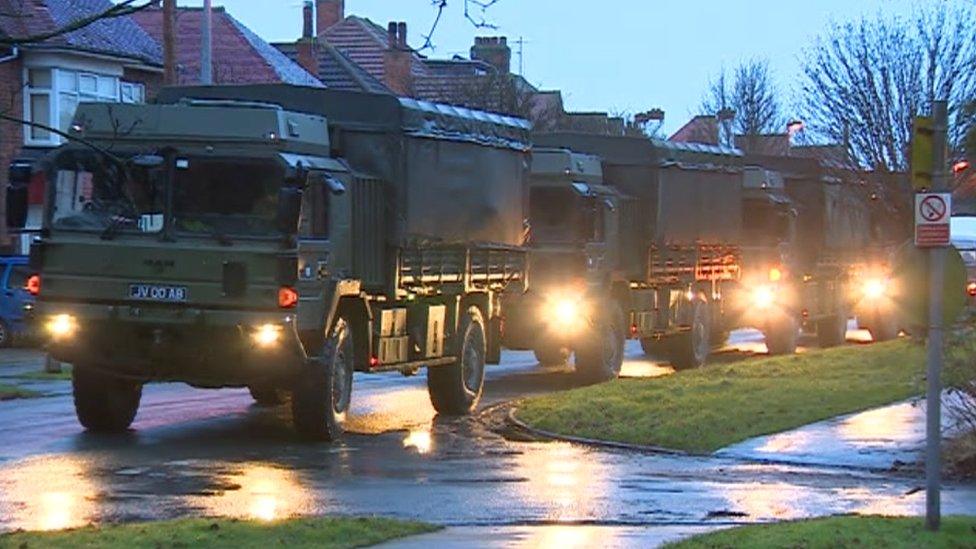
The soldiers called in are from one of the three UK Standby Battalions, held at readiness to respond to emergencies
Preparations are being made ahead of a predicted storm surge in the east of England, as severe flood warnings are put in place by the Environment Agency.
High tides and gales are expected to bring disruption along the east coast overnight and on Friday.
The "severe" categorisation means the agency is warning of "danger to life".
About 100 soldiers have been sent to Lincolnshire to help issue door-to-door warnings, while the Essex village of Jaywick is set to be evacuated.
In a statement about the evacuation, Essex's fire service said: "Police officers will be calling at addresses in Jaywick from 4pm this afternoon to advise people that a full evacuation plan will be implemented starting at 7am on Friday."
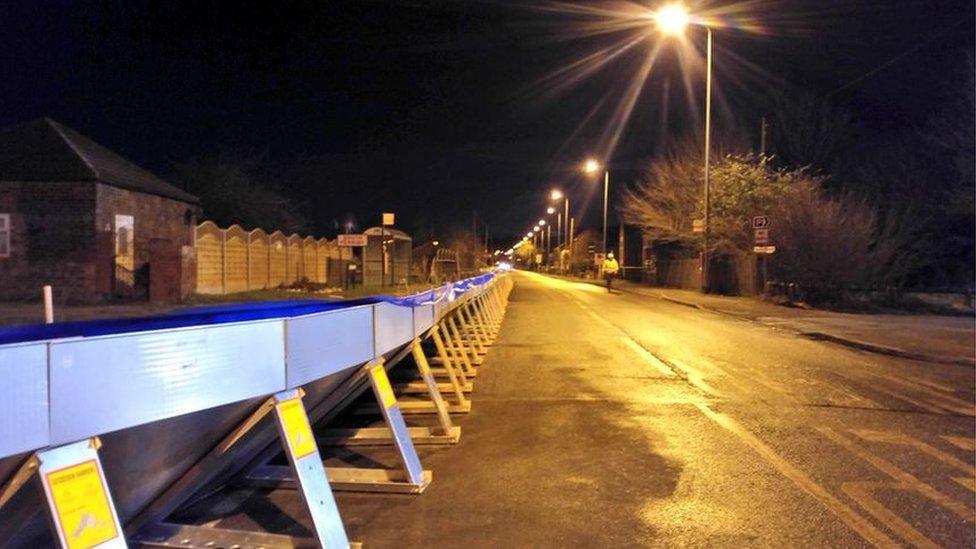
A 1.7 mile long flood barrier is protecting the village of South Ferriby in North Lincolnshire
Ch Insp Russ Cole, from Essex Police, said the decision had been made to "ensure the safety of all residents".
He said residents were also free to self-evacuate to the rest centre in Clacton or stay with friends or relatives outside of Jaywick.
The east coast was affected by a storm surge in December 2013, when thousands were forced to abandon their homes as tides in parts of the North Sea reached higher levels than during the devastating floods of 1953.
By Thursday evening, there were seven severe warnings in place for parts of Suffolk and Essex including from Clacton to Lee Wick - Jaywick is on this stretch of coast - on the River Stour at Mistley, and at West Mersea.
There were more than 60 regular flood warnings in place, external across England - meaning flooding is expected and immediate action is required - with the majority on the east coast.

Seafront businesses in Scarborough have installed temporary flood barriers to protect properties
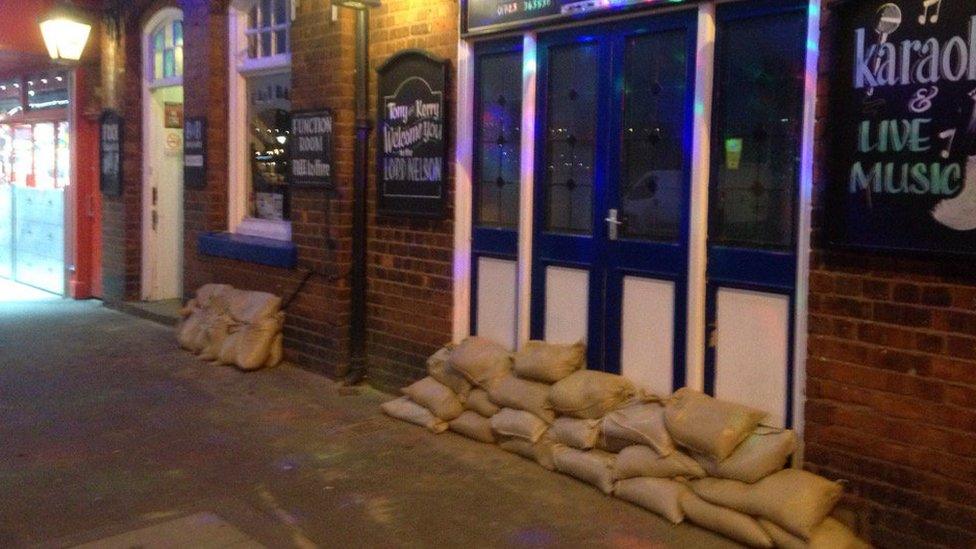
Business owners said many would be staying up overnight to prepare for the surge
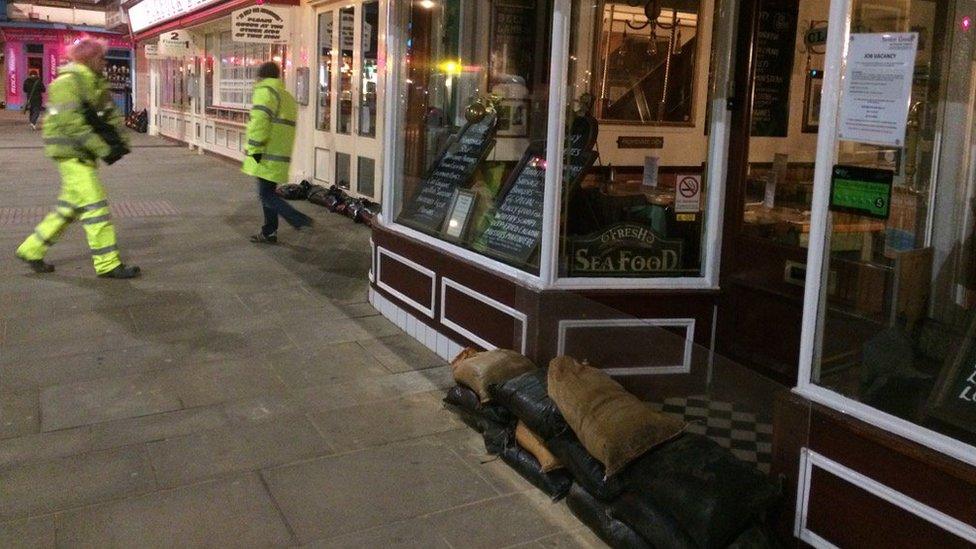
Sandbags are protecting businesses on Scarborough seafront
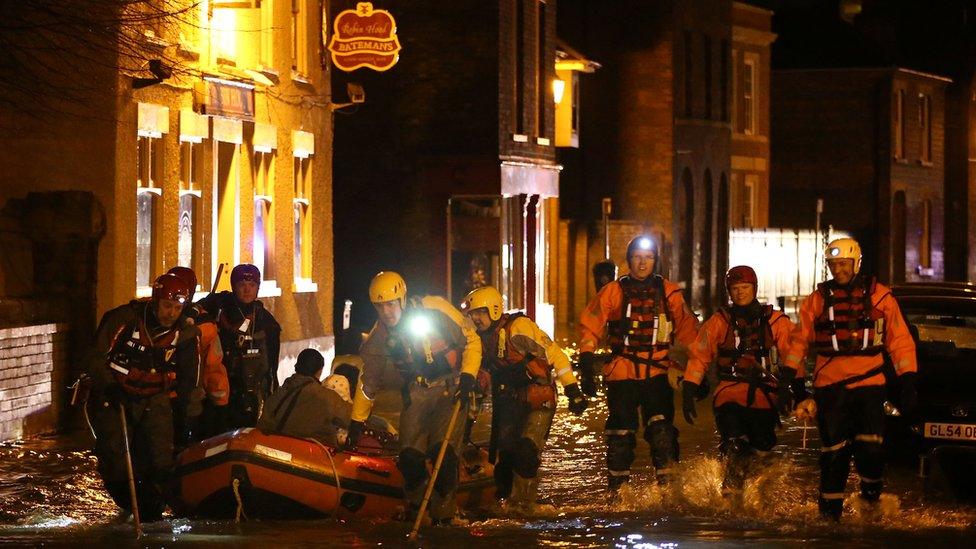
An east coast surge in 2013 led to properties being flooded
Communities in Lincolnshire, Norfolk, Suffolk and Essex have been warned by the agency they are particularly at risk from the tidal surge, which is expected to peak on Friday with severe flooding anticipated at midday and at 21:00.
Colchester Borough Council has also said some properties at West Mersea could be at risk of flooding and is advising residents of evacuation plans if needed.
Suffolk Police have warned of possible evacuations, external of up to 1,100 coastal properties identified as being at risk of flooding.
Lincolnshire Police said the area of most concern in the county was a stretch of coast between Gibraltar Point, near Skegness, and Donna Nook, about 35 miles to the north. About 3,000 properties are being monitored.

What causes a storm surge?
The principal cause of a storm surge is high winds pushing the seawater towards the coast.
There is also a smaller contribution from the low pressure at the centre of the storm "pulling" the water level up - a similar effect to what happens when you drink through a straw.
The strong winds can generate large waves on top of the surge which can then damage sea defences or cause water to spill over the top of defences, which increases the flood risk to coastal communities.
Source: The Met Office

The Army said 100 soldiers were being sent from Catterick to Grantham to help police warn the public, while rest centres have been set up in Louth.
Lincolnshire's Chief Constable, Neil Rhodes, said experts did not believe the sea defences would be breached but the authorities were monitoring the situation and he added residents should be aware of the latest updates.
"The peak is about 06:30 GMT on Friday when the tides will be at their highest," he said.
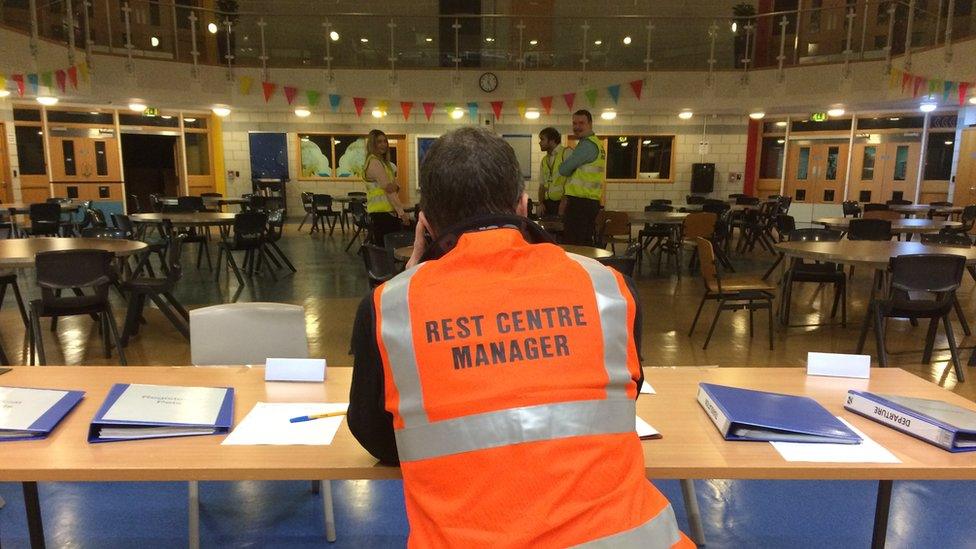
A rest centre has opened in Clacton ahead of the evacuation in Jaywick, which is set to start at 07:00 on Friday
He said he had three key messages to people in the area:
Do not go thrill seeking with cameras to take pictures of the water coming over defences
Check on vulnerable neighbours who might not be aware of the warnings
Work out where you could stay, perhaps with family, if you do need to leave your home
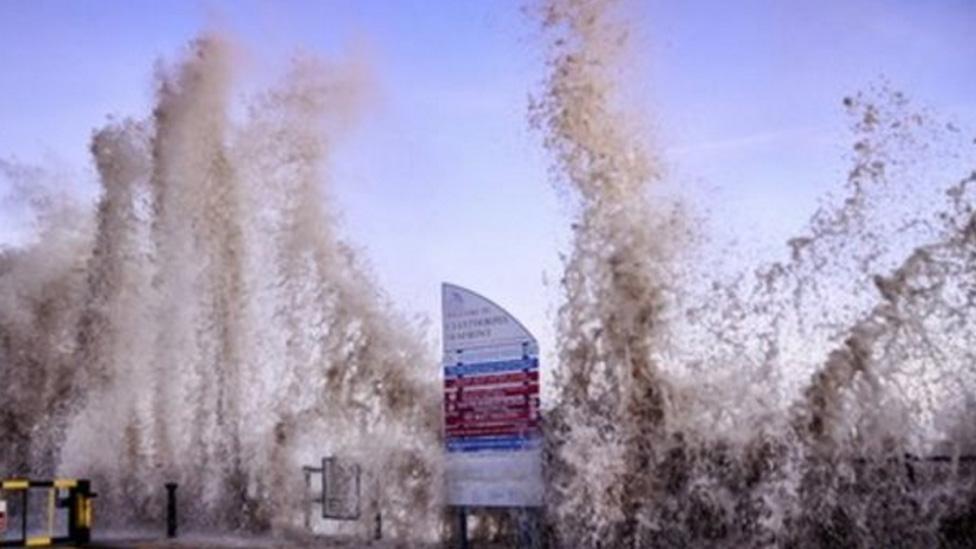
The area was affected by a storm surge in December 2013
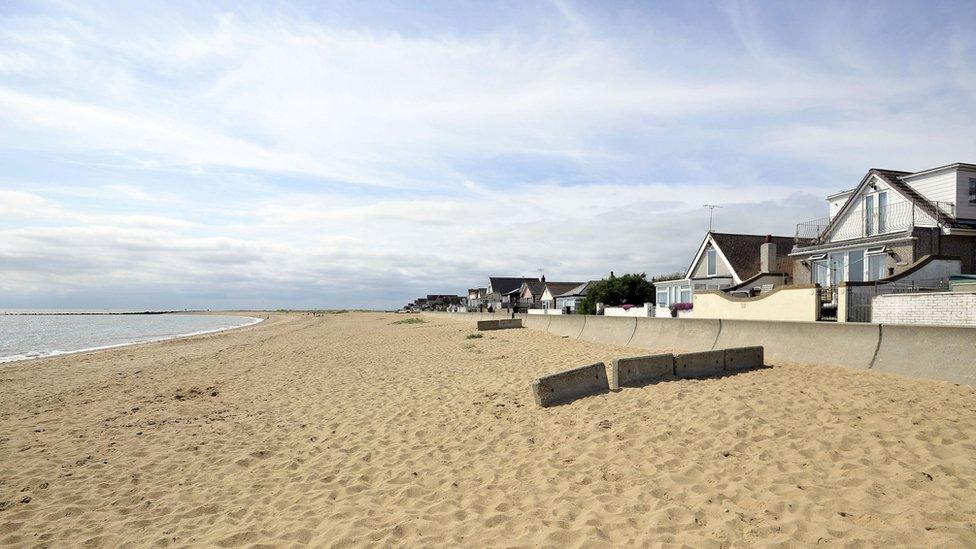
Severe flood warnings are in place along a stretch of the Essex coastline
A spokesman for the MoD said: "At the request of the Lincolnshire Police, we have deployed 100 soldiers from A Company, 2nd Battalion The Yorkshire Regiment to Skegness to support the police in the precautionary evacuation of residents whose homes may be at risk of flooding.
"These soldiers are from one of the three UK Standby Battalions, held at readiness to respond to UK contingencies and emergencies."
Floods minister Therese Coffey said the government was closely monitoring the national situation as it developed.
"Our absolute priority is protecting lives, homes and businesses from the threat of coastal flooding currently facing the east coast," she said.
"That is why we have soldiers on the ground helping to warn and evacuate people alongside the emergency services and Environment Agency teams, who are putting up temporary defences."
BBC weather presenter Tomasz Schafernaker said the northerly direction of the winds was the problem.
"Because they are travelling from north to south they are almost going to be piling up along the coastline of Lincolnshire, down into the Norfolk coast as well," he said.
"So there will be some really nasty stormy conditions out at sea and some of the waves might even be crashing against the sea defences and overtopping them."
Humberside Police said the force was "erecting temporary barriers where needed and putting in place some local road closures".
- Published12 January 2017
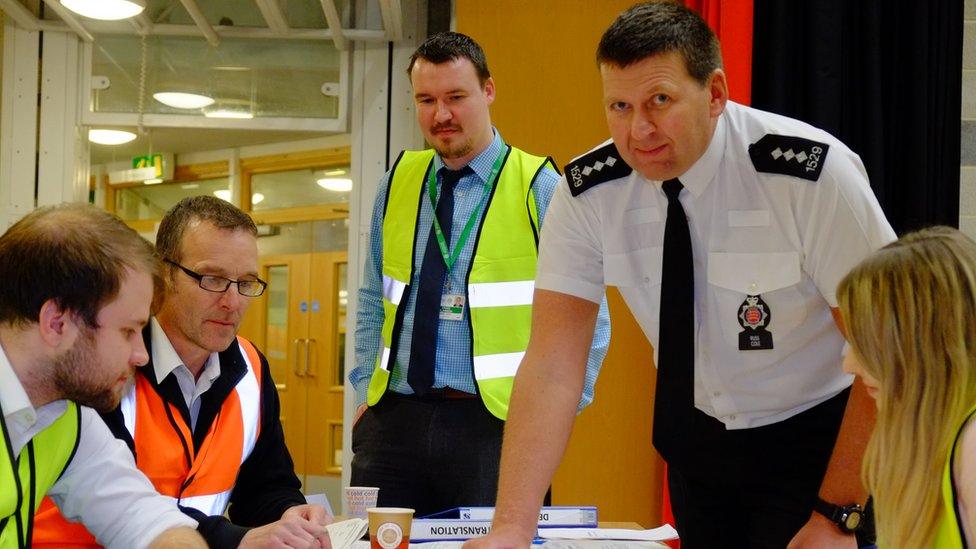
- Published13 January 2017
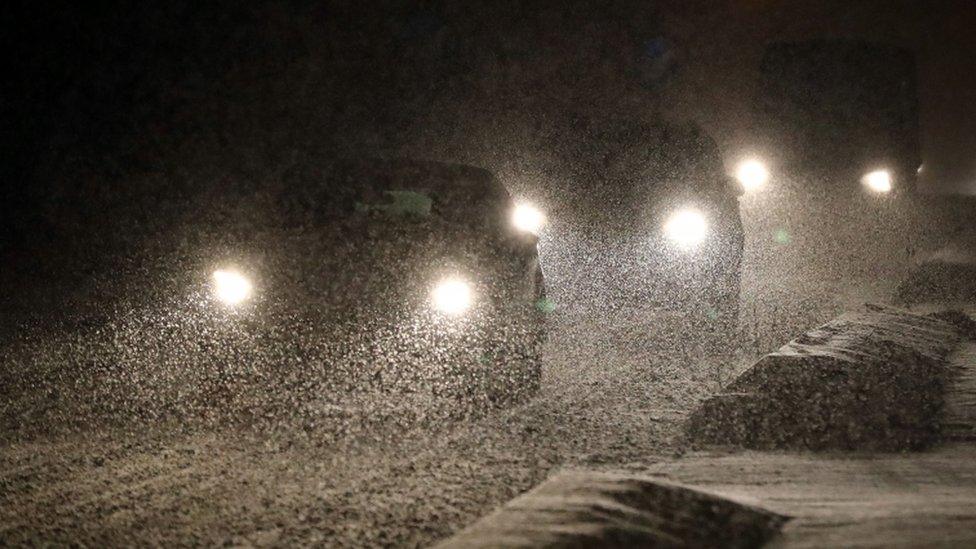
- Published16 June 2022

- Published6 December 2013
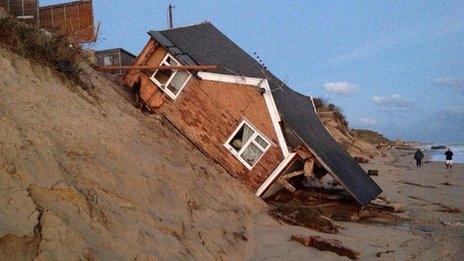
- Published6 December 2013
